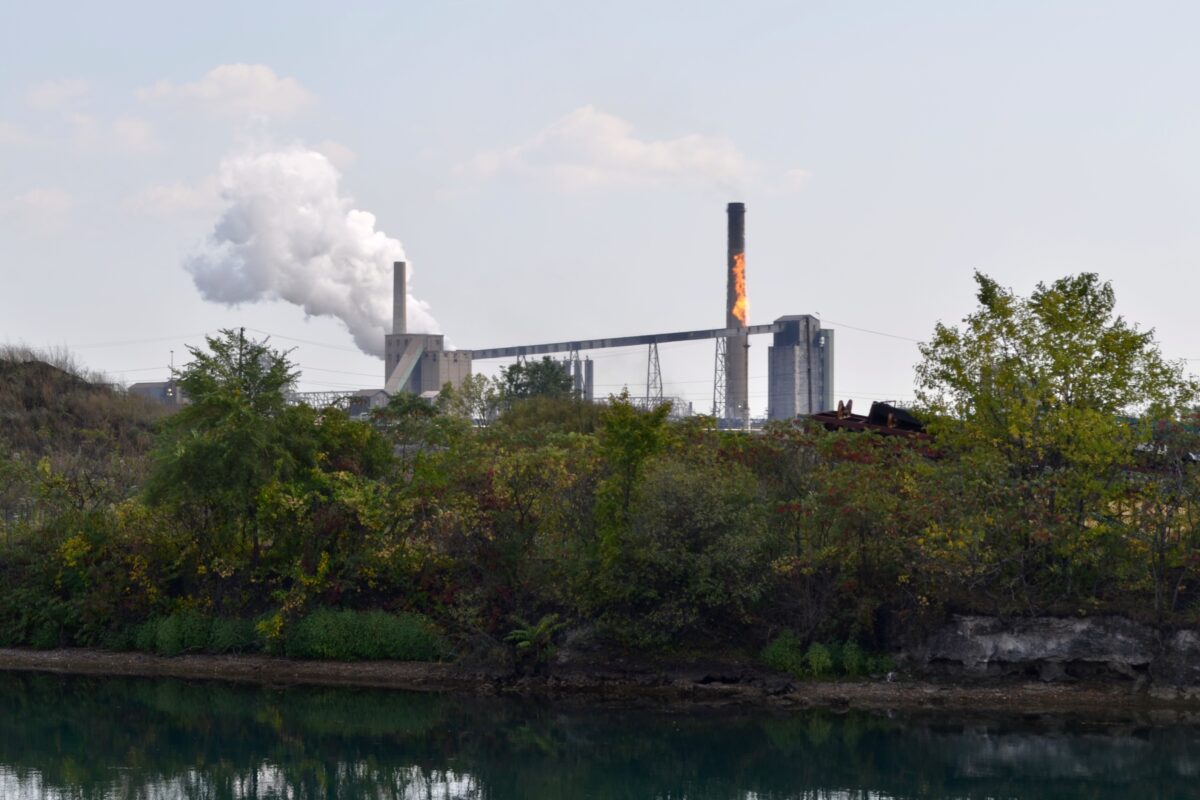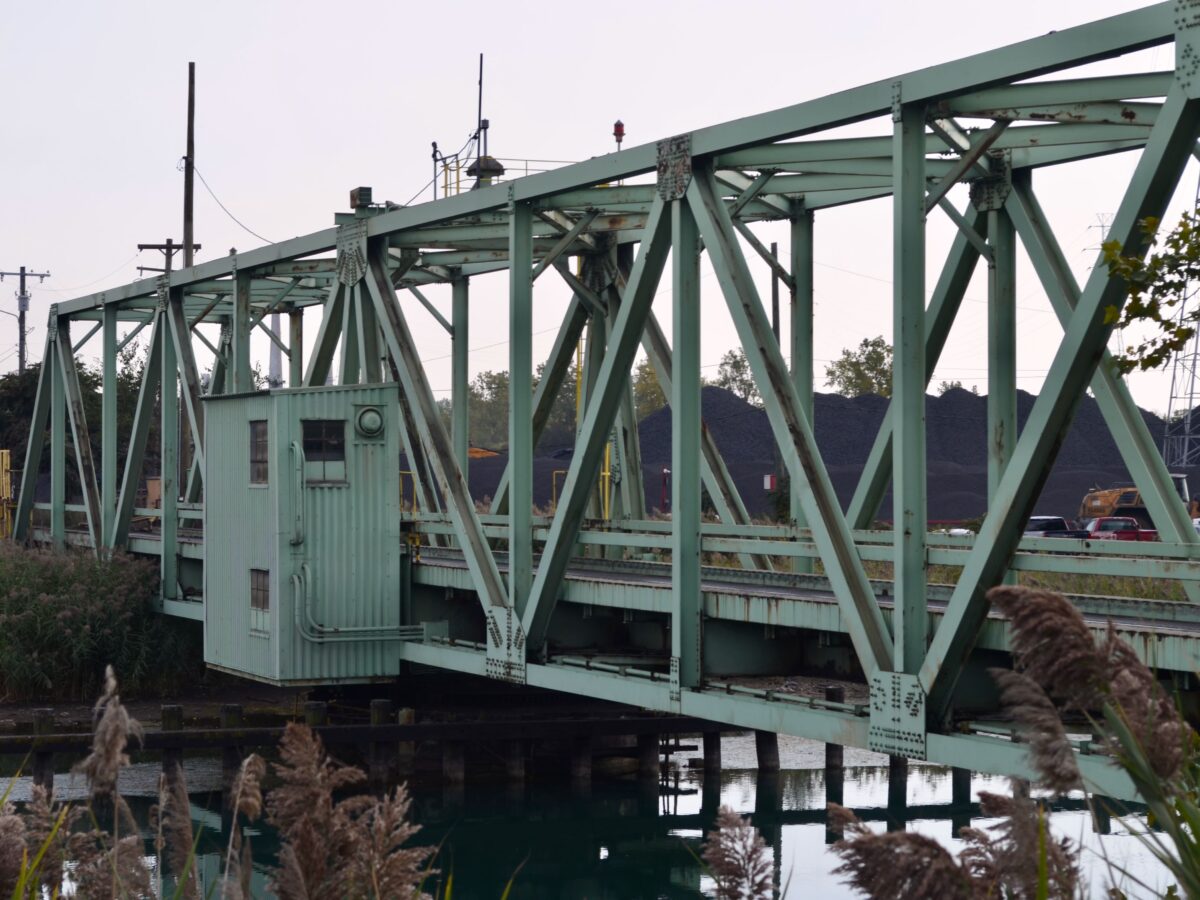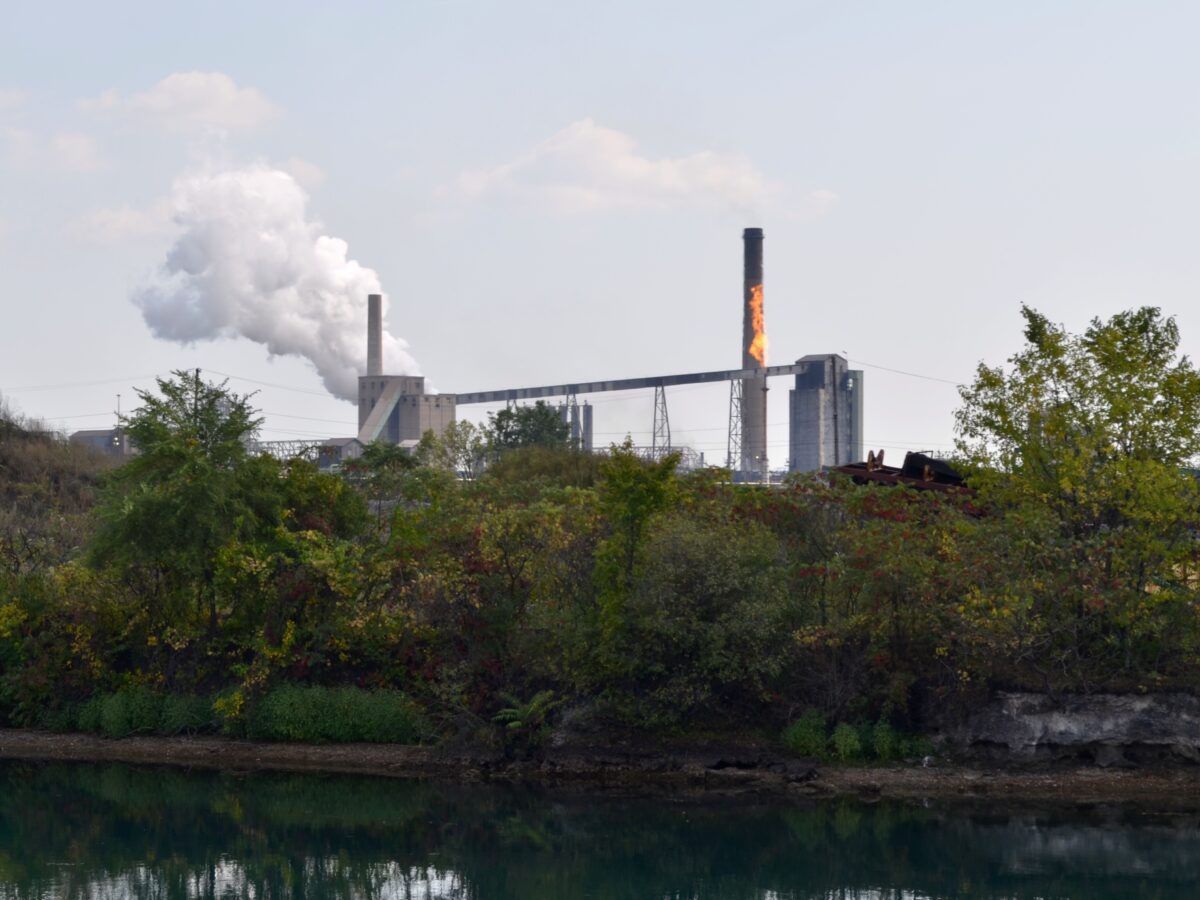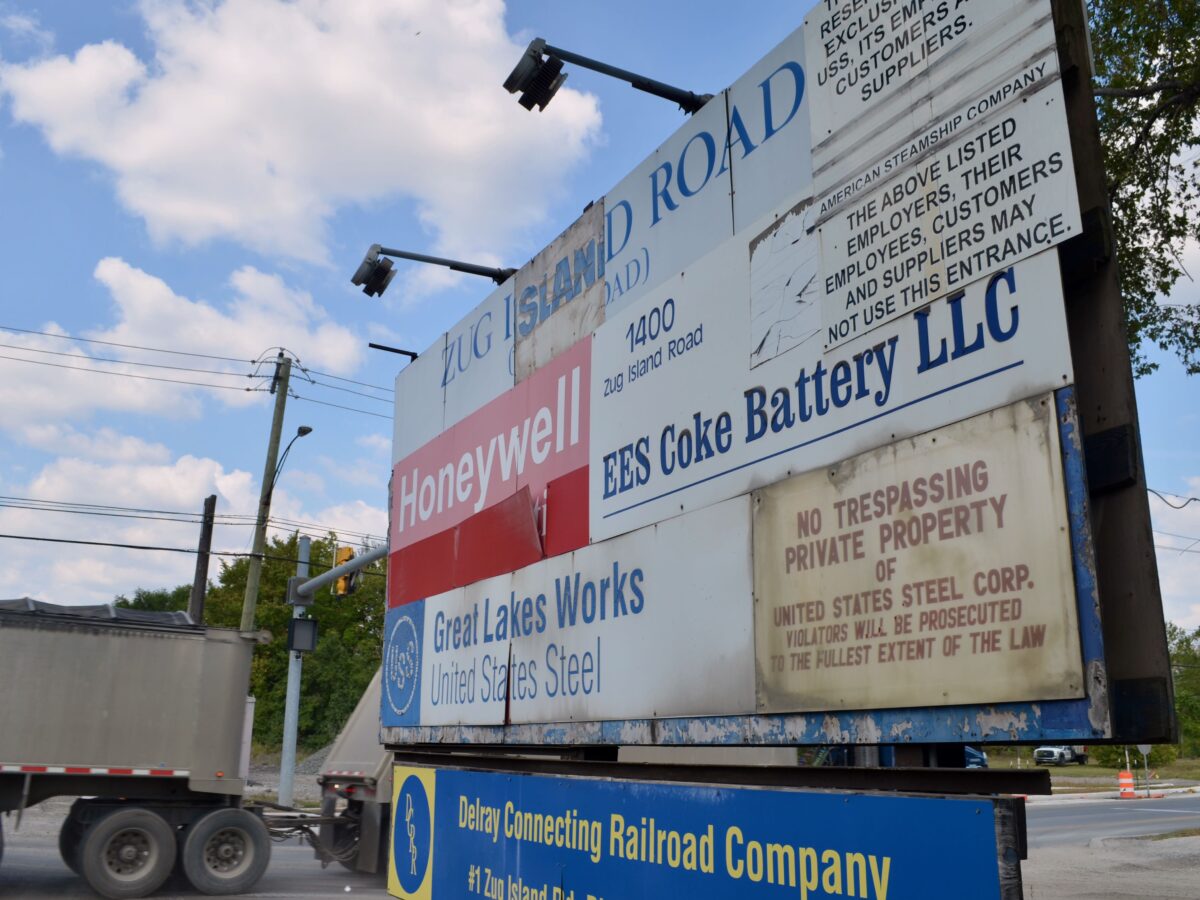Overview:
- President Donald Trump signs proclamation exempting EES Coke Battery on Zug Island from new EPA rules for two years.
- The regulations cover benzene monitoring; leaks from doors, lids, and offtakes; and pollution control standards.
- The DTE Energy-owned facility is in court with the EPA over sulfur dioxide emissions.
Christmas came early on Zug Island this year, and there’s a lump of coal under the tree.
DTE Energy-owned EES Coke Battery is exempt from coke oven pollution rules enacted during the Biden administration for two years, according to a proclamation signed Friday by President Donald Trump.
The exemption delays federal rules designed to detect and limit hazardous air emissions at a site long scrutinized by regulators and nearby communities. It also comes as EES Coke Battery faces a federal lawsuit over sulfur dioxide pollution.
In May, Planet Detroit reported that EES Coke Battery was among the facilities offered two-year exemptions by the Trump administration from deadlines to comply with air pollution standards. EES Coke Battery applied for an exemption, the company’s vice president said at the time.
The Zug Island facility’s exemption applies to new regulations on fenceline monitoring for benzene; leaks from coke oven battery doors, lids, and offtakes; and pollution control standards.
New EPA rules for coke ovens follow zigzag path
Without the exemption from Trump, EES Coke Battery would have had to meet new pollution control standards by Jan. 5, 2026 for acid gases; dioxins and furans; hydrogen cyanide; mercury, polycyclic aromatic hydrocarbons; particulate matter; nonmercury hazardous air pollutants like lead and arsenic; and volatile organic hazardous air pollutants, according to the EPA rule.
The fenceline monitoring and leak regulations were effective July 7 of this year. One day later, the EPA issued an interim final rule that extended the compliance deadlines to July 5, 2027. After the agency received public comments and held a hearing on the deadline extension, EPA Administrator Lee Zeldin signed a notice Oct. 2 that withdrew it.
Environmental groups filed suit against the EPA in August over the deadline extension.
The EPA estimated the coke oven rules would cost coke producers with byproduct chemical recovery, like EES Coke Battery, an average of $250,000 per year.
EES Coke Battery is one of 11 facilities affected by Trump’s proclamation.
The coke producers were already expected to have hazardous air pollutant emissions below the final limits, according to the EPA rule, meaning no environmental benefits were expected.
The new requirements make it more likely that coke ovens would detect excess hazardous air pollutant emissions, leading to earlier corrective action and preventing pollution increases, according to the EPA.
EES Coke Battery emitted significantly more sulfur dioxide than its 2014 Clean Air Act permit allowed, according to an Aug. 25 ruling by U.S. District Judge Gershwin Drain in a lawsuit filed by the EPA against the Zug Island facility.
Clean Air Act allows presidential exemptions
EES Coke Battery produces coke, a raw material in the steelmaking process produced by heating coal in an oxygen-free environment.
In the Nov. 21 presidental proclamation, Trump states that about 70% of all steel is made of metallurgical coke. “A strong coke industry is therefore vital to building and maintaining critical infrastructure and military readiness,” the exemption said.
The coke oven rule requires compliance with standards based on emission control technologies that “do not yet exist in a commercially demonstrated or cost-effective form,” according to the Trump administration.
A section of the Clean Air Act allows the president to exempt stationary sources from compliance for not more than two years if the president determines the technology to enact the standard is not available, and it is in the national security interests of the U.S. to do so.
A presidential exemption can be extended for one or more additional periods, according to the Clean Air Act.
EPA, DTE Energy in court over Zug Island pollution
At the same time Trump’s proclamation exempts EES Coke Battery from some EPA rules, the EPA is seeking a $140 million civil penalty against the DTE Energy-owned facility in a federal lawsuit over sulfur dioxide emissions.
EES Coke Battery proposed a $5 million penalty and said the fine requested by the EPA amounts to a shutdown order. The Zug Island facility’s attorney said it’s willing to install pollution controls that would cut sulfur dioxide emissions by at least 33%.
A bench trial in the case wrapped Sept. 29. The final filings and verdict were delayed by the subsequent federal government shutdown, as the U.S. attorneys representing the EPA were furloughed.
Drain set a Dec. 5 deadline for the post-trial submissions in the lawsuit.
🗳️ Civic next steps: How you can get involved
Why it matters
⚡ A federal lawsuit filed by the EPA could determine the future of a Zug Island facility owned by DTE Energy that is one of Michigan’s top industrial polluters.
Who’s making civic decisions
🏛️ U.S. District Judge Gershwin Drain.
Read more:
• 🗞️ Planet Detroit’s ongoing coverage of the lawsuit, including a September bench trial.
• 📄 Drain’s August opinion and order that states there is evidence demonstrating that DTE Energy exercised control over EES Coke Battery’s emissions, supporting a finding that the utility is an operator of the facility under the Clean Air Act.
• 🏭 EPA overview of New Source Review permits.
Track air quality:
• 😷 Check local air quality.
• 🚨 Sign up for the Michigan Department of Environment, Great Lakes, and Energy’s air quality alerts.
What to watch for next
• ⚖️ A federal court ruling on the EPA’s lawsuit against EES Coke Battery. The final post-trial filings in the case are due Dec. 5.
⭐ Please let us know what action you took or if you have any additional questions. Please send a quick email to connect@planetdetroit.org.
MORE ZUG ISLAND NEWS
EPA, EES Coke Battery are $135 million apart on Clean Air Act penalties as Zug Island pollution trial ends
The EPA is seeking a $140 million civil penalty against Zug Island’s EES Coke Battery, while the facility and its owner DTE Energy propose a $5 million penalty.
DTE’s Zug Island operation switched fuel sources after damage to facility: Court testimony
EES Coke Battery on Zug Island switched to coke oven gas as its exclusive fuel source after damage to the facility was discovered around 2011 and 2012, according to federal court testimony.
EES Coke Battery exec: Pollution controls cost more than Zug Island facility is worth
EES Coke Battery’s net worth is about $135 million to $155 million, executive vice president testifies Thursday.





